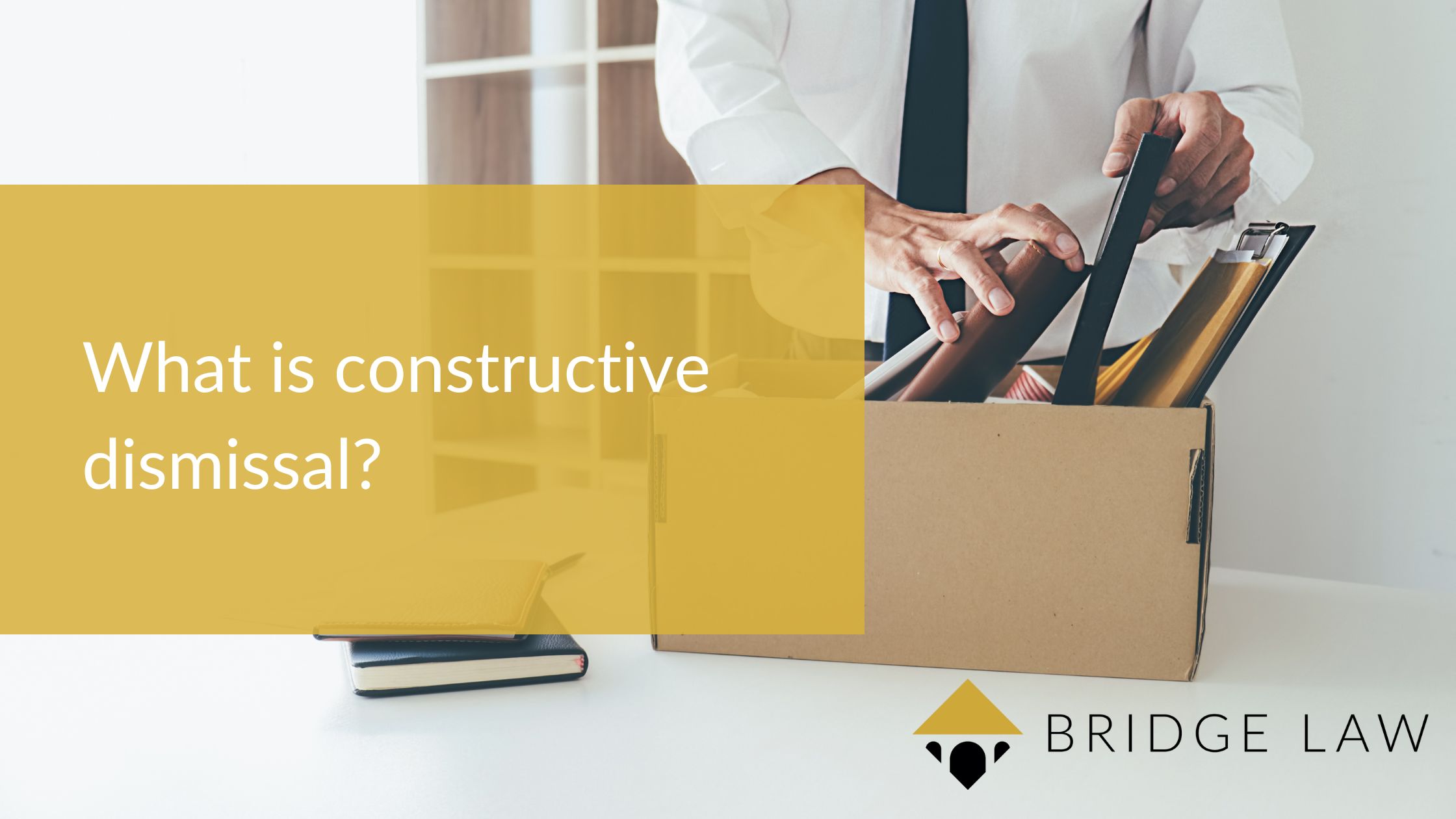What is constructive dismissal?

In the world of employment law, there are many types of dismissal to be aware of. In this article, we will focus on constructive dismissal.
Constructive dismissal is when you are forced to leave your job against your own will due to the actions and conduct of your employer.
When an employer unreasonably breaches a contract, this can be stressful and disheartening and sometimes gets to the point where it seems the best thing to do for your mental health and wellbeing is to resign. This could be a case for constructive dismissal.
What is the difference between unfair dismissal and constructive dismissal?
There are many types of dismissal – constructive dismissal and unfair dismissal are often confused with each other.
The main difference between unfair and constructive dismissal is that constructive dismissal is when you, as the employee, make the decision to resign due to your employer’s behaviour.
Unfair dismissal is when your employee ends the employment and unlawfully dismisses you as the employee.
Compared to constructive dismissal, unfair dismissal tends to be easier to prove. This is because it’s more simple to establish whether the dismissal of the employee is fair or unfair, whereas when an employee resigns it’s hard to establish if it’s constructive dismissal.
You can read more about unfair dismissal in our previous blog here.
What can be a reason for constructive dismissal?
There are many reasons why constructive dismissal occurs – here are some examples:
- If you’re being bullied or discriminated against in the workplace
- If you’re not being paid the correct amount without good reason
- If your employer constantly changes your shift patterns or place of work
- If your employer refuses to look into a grievance that you have raised
- If you have been unreasonably demoted
What to consider if you choose to make a constructive dismissal claim
Handing in your resignation is a big step and it’s a decision that would and should not be taken lightly. However, constructive dismissal still remains a difficult one to win at employment tribunals without sufficient evidence. It is the responsibility of you, as the claimant, to prove that your employer has breached the terms of the contract.
To make a constructive dismissal claim, you must have been in employment with the employer in question for at least two years and your status must be ‘employee’.
It’s also important to note that a constructive dismissal claim must be put forward within three months of your last working day with that employer.
If you decided to work your notice, the three months is from the last day of your notice period but if you haven’t worked your notice, this will be from the day that you resigned.
Employment tribunals are not plain-sailing and can cause a lot of stress. So, before claiming constructive dismissal, there are a few steps you can take which may help you avoid having to go down this route. Such as trying to talk to your employer face to face, to express your concerns and see if there is anything that can be done to resolve the issues.
Sometimes this can be difficult, so, if you are not comfortable informally talking to your employer, you can raise a formal grievance; this is a formal process of raising a problem or complaint to your employer.
After these steps have been taken and resignation seems like the best choice for you and your situation, it’s sensible to outline all of the reasons why you’re leaving in your resignation letter – you have to be extremely clear about the employer’s offending conduct to better your chances of winning a constructive dismissal claim.
However, we would always recommend seeking legal advice before handing in your resignation.
If you are seeking legal advice on an employment law claim like constructive dismissal, speak to our specialist employment law team on 0161 427 0084 (Marple Bridge office), 01484 442 700 (Holmfirth office) or email: info@bridgelawsolicitors.co.uk.
Written by Nikki Sharpe

